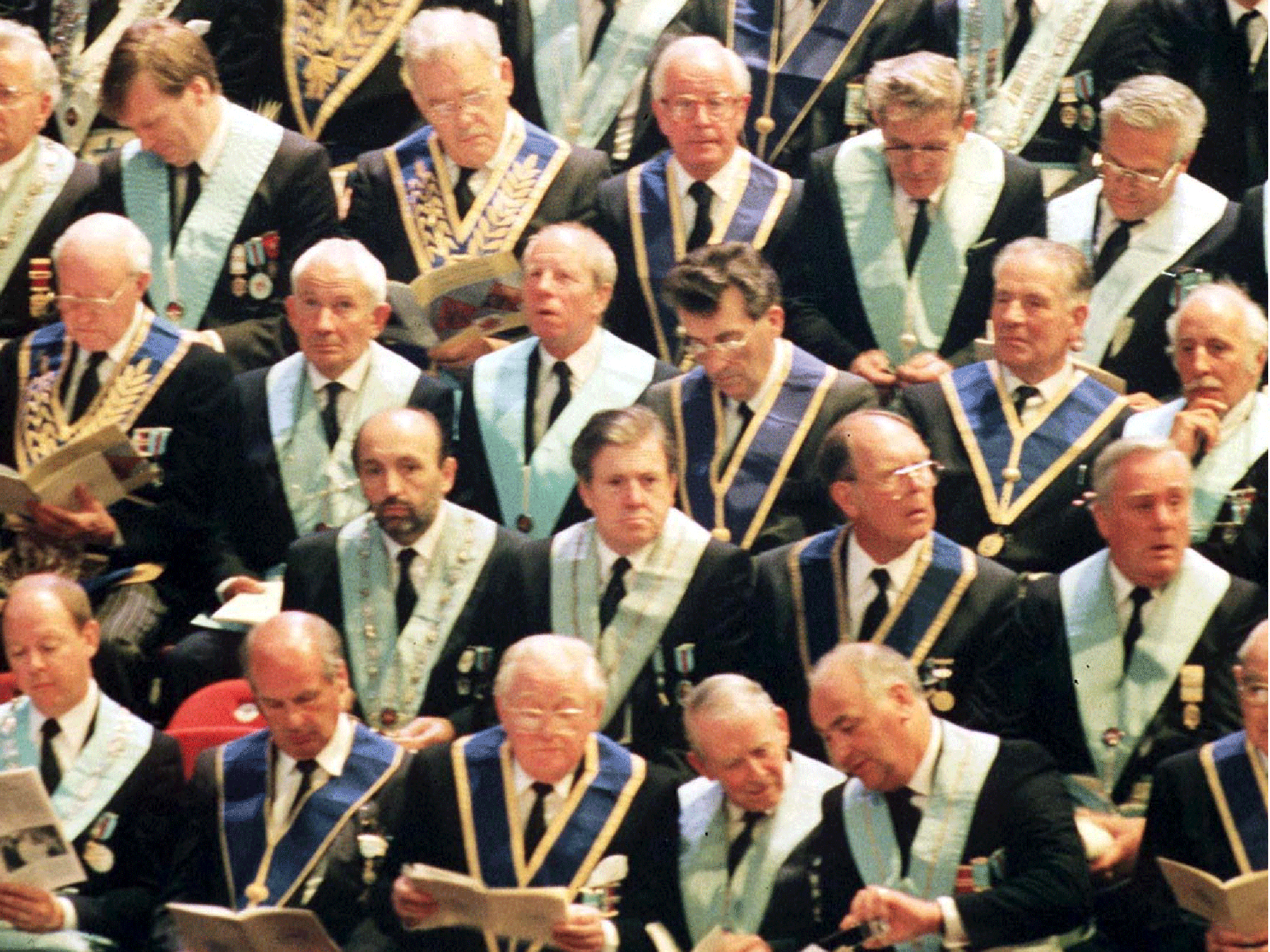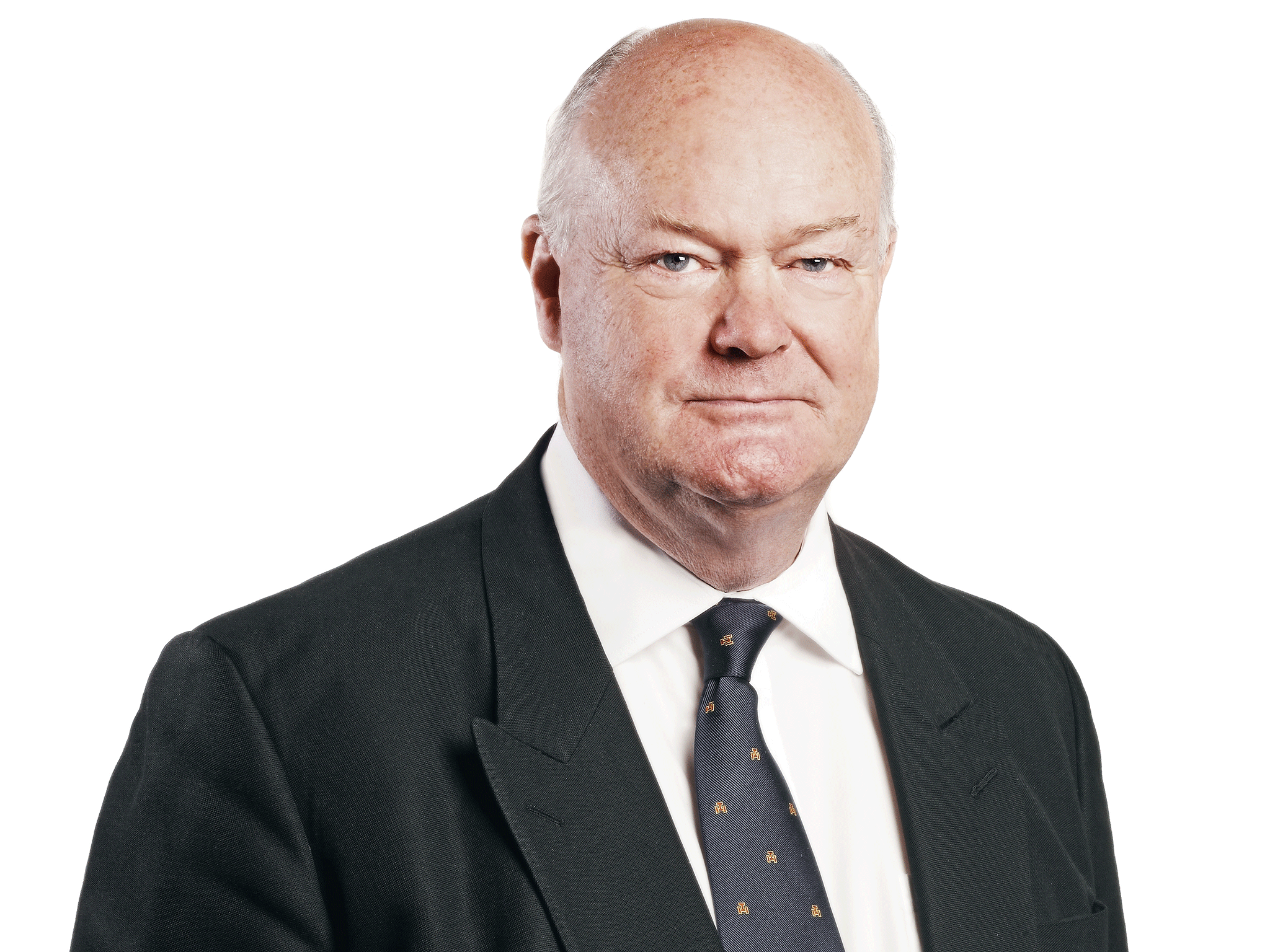Older freemasons told to smile and stop criticising in bid to attract millennials
Senior brethren told to look like they are enjoying themselves as recruiting younger members is hailed as the new hope for halting the decline of freemasonry

Your support helps us to tell the story
From reproductive rights to climate change to Big Tech, The Independent is on the ground when the story is developing. Whether it's investigating the financials of Elon Musk's pro-Trump PAC or producing our latest documentary, 'The A Word', which shines a light on the American women fighting for reproductive rights, we know how important it is to parse out the facts from the messaging.
At such a critical moment in US history, we need reporters on the ground. Your donation allows us to keep sending journalists to speak to both sides of the story.
The Independent is trusted by Americans across the entire political spectrum. And unlike many other quality news outlets, we choose not to lock Americans out of our reporting and analysis with paywalls. We believe quality journalism should be available to everyone, paid for by those who can afford it.
Your support makes all the difference.Older freemasons are being told to smile, look like they are enjoying themselves, and avoid criticising as the movement seeks to keep millennial masons happy and halt a decline in membership that has seen lodges closing at a rate of nearly 100 a year for the past decade.
Pro Grand Master Peter Lowndes, second only to the Grand Master the Duke of Kent, the Queen’s cousin, told senior brethren gathered in the Grand Temple, wearing white gloves, aprons and, if suitably qualified, the Royal Arch Breast Jewel: “I am not for one minute suggesting we try to turn our meetings into a pantomime, but most certainly I am saying there is no harm in being seen to enjoy ourselves.”
Mr Lowndes, 68, an Old Etonian chartered surveyor, issued his plea as English and Welsh freemasonry takes the extraordinary step of welcoming in a documentary film crew while preparing to celebrate its 300th anniversary against a backdrop of steadily declining membership numbers.
Figures seen by The Independent show that the number of lodges on the register of the United Grand Lodge of England (UGLE), the governing body of English and Welsh freemasonry, has gone down from 8,389 in 2006 to 7,401 today – equivalent to a loss of almost 99 lodges a year.
UGLE documents show that in the second quarter of this year alone, 37 lodges closed while only two new lodges opened, a net loss of 35.
While the UGLE reported 270,000 individual masons in 2007, the current membership is 204,775 – a drop of 24 per cent to well below half the peak of more than 500,000 masons that freemasonry experienced in the immediate post-war years.
But while membership has declined among all other age groups, among millennials aged 21 to 30 it has increased by 7.65 per cent in the past two years.
Although still only 2 per cent of the total membership, 21- to 30-year-olds have now been described by Freemasonry Today, the official journal of the UGLE, as “a significant reprieve from a death knell for us all".
Already efforts to attract the younger age group, and to resolve at least one worshipful brother’s complaint that “some lodges look like God’s waiting room”, have included creating 55 new university lodges since 2005.
There was also the consecration last year, in a Novotel in Southampton, of the Lodge of Brevity, where younger, time-poor working masons can enjoy meetings that are kept short by dispensing with items like reading the minutes, which are instead scrutinised online.
Membership fees have been reduced for under-25s and millennial masons have themselves suggested freemasonry could benefit from “an advance in the use of social media”.
The recruitment drive has not yet gone as far as the UGLE admitting women members, but Pro Grand Master Lowndes now seems to have used his most recent Quarterly Communication speech to throw his full weight behind attempts at attracting millennial men into freemasonry.

And in a further effort to promote freemasonry, it is thought that Mr Lowndes gave his speech while cameras were present in London’s Freemasons' Hall for a fly-on-the wall Sky documentary to be shown ahead of next year’s 300th anniversary of the formation of the Grand Lodge in 1717.
After telling the assembled Grand Officers and Worshipful Masters that he was wearing a “particularly attractive” new breast jewel to mark the approaching 300th anniversary – and that a new Tercentenary Craft tie with redesigned square and compasses logo would soon be available – he said: “We have come a long way since the time that I was initiated 44 years ago. I enjoyed my early meetings, but possibly despite some of the more elderly members rather than because of them. In those days it was nearly a capital offence to smile in lodge.
“We can probably all cite instances when a more senior member of a lodge is less than sympathetic to a newer member who has, perhaps, had a few lapses during the ritual. In my view exactly the opposite reaction has the right effect.
It’s important in masonry to retain the dignity of what we are doing, but that shouldn’t stop the charity steward making some little quip about old Fred, and everybody laughing
“I am in absolutely no doubt, brethren, that, if we encourage and congratulate, rather than routinely castigate our new members we will go a long way to retaining them as members and finally turn around our drop in numbers, which, incidentally, is already happening in some provinces and districts.”
The Pro Grand Master also told the brethren inside the Grand Temple in Freemasons’ Hall that lodges with dwindling numbers could learn from the jollity of members in affiliated districts abroad.
“I have often thought,” said Mr Lowndes, “that if a lodge in this country has lost its way, it could do a lot worse than to get some members to visit some of our districts, particularly, dare I say in West Africa and the Caribbean, to see how much enjoyment can be derived from their meetings.”
Allowing in Sky’s cameras is also part of the UGLE’s recent attempts to shed a reputation for secrecy and conspiracy which has led to masons being unfairly implicated in countless political intrigues, and in more recent years to concerns about freemasonry in the police. These stretch back to at least the late 1960s when it was reported that Detective Chief Superintendent Bill Moody, the then head of the Obscene Publications Squad, had helped a pornographer join his lodge.
It is thought the Sky documentary makers have even been allowed to film a rehearsal for an initiation ceremony, which would probably be the closest anyone has ever got to recording such a ritual with the masons’ consent.
The transparency, however, did not extend to Grand Secretary Willie Shackell confirming to The Independent what the initiation ritual involved.
He suggested we try Google: “During our rituals, we are sworn to abide by certain standards. Certain information we keep to ourselves.”
We are as vibrant and relevant now as we have ever been
Research suggests that initiates do still briefly roll up their trouser leg, but that the threats of a slashed throat if they divulge the secrets of freemasonry have been “modified”.
The initiate still has a noose placed around his neck, but this is to depict the umbilical cord in a representation of birth.
Mr Shackell, 75, a retired brigadier from Storrington, West Sussex, did reveal: “I find it slightly surprising, but a lot of the young people love the ritual.
“They also enjoy the comradeship. A number of young masons clubs have been springing up in London and the provinces – members from different lodges gathering for social activities like barbecues. The Sussex one even went on a cruise.”
“We all enjoy our masonry,” he insisted. “We enjoy it in different ways. There are, I suppose, some older people who do find it difficult to smile, but it doesn’t stop their enjoyment.
“It’s important in masonry to retain the dignity of what we are doing, but that shouldn’t stop the charity steward – towards the end of the lodge meeting rather than during the ceremony – making some little quip about old Fred, and everybody laughing. It’s not frowned upon to laugh. If a member says something amusing at the end of the meeting, then fine.”
Nor, he added, was there any suggestion that millennial masons were part of some sort of oversensitive ‘generation snowflake’.
“Delicate?” he said. “No. They are a pretty tough lot, far more self-confident than I was at that age. We are very lucky to have so many vibrant young people.”
Adding that the masons were also keen to attract “over-55s with time on their hands”, Mr Shackell said that because of freemasonry’s charity work and general outlook, “we are as vibrant and relevant now as we have ever been".
“Bikers’ lodges have been thriving of late,” he said. “We consecrated a footballers’ lodge in June – [England player] Adam Lallana’s father was its first Worshipful Master, although I don’t think Adam himself is a member. It’s an organisation people want to join.”
Joining early, added the Grand Secretary, was a wise move: “It is a hell of a lot easier to learn masonic ritual when you are young.”
Join our commenting forum
Join thought-provoking conversations, follow other Independent readers and see their replies
Comments